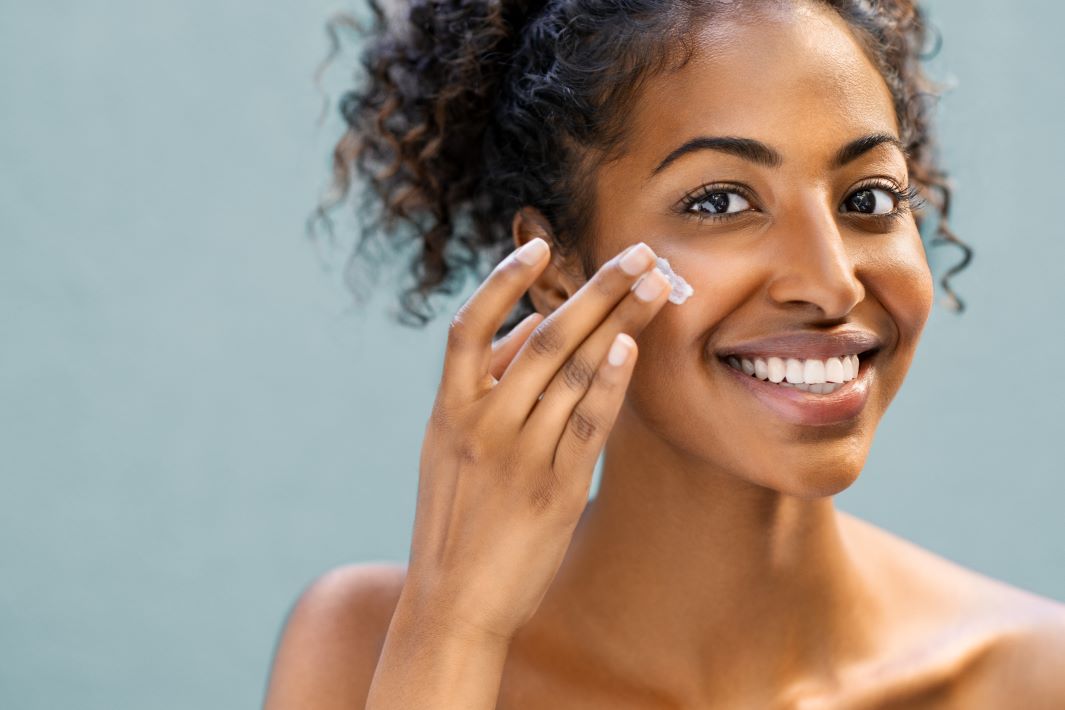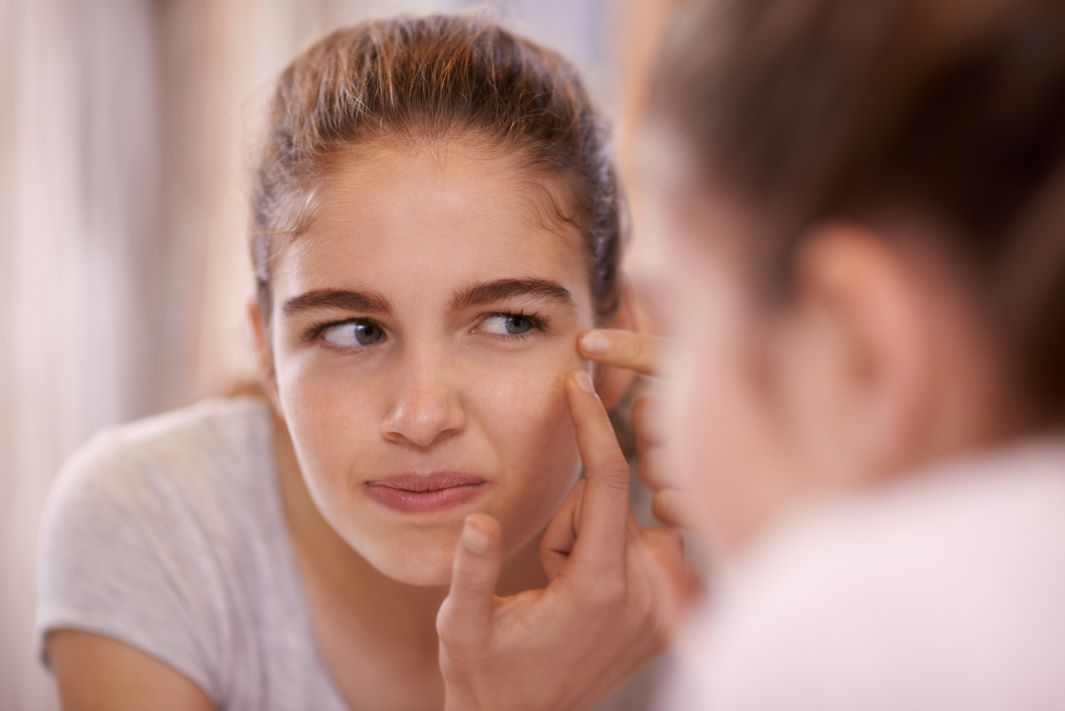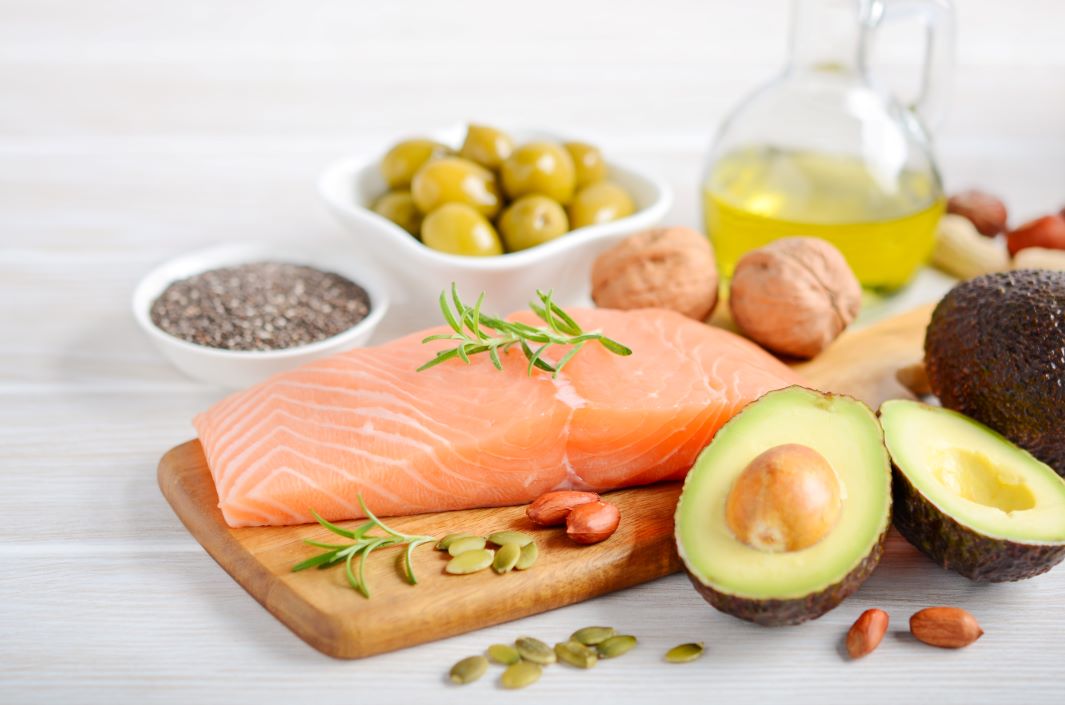Reading Time: 5 Min
Table of Contents
Spa day at home in 3 easy steps
Dry, dull skin or acne? The right nutrition contributes to healthy, radiant skin
Just like a bad hair day, you can have bad skin days, too. But what if impurities, dry spots and unbalanced skin last for a longer period of time? Of course, you can fix quite a lot with the right facial care, but your skin is an organ. And, like almost any organ, your skin gets nutrients from what you eat and drink. Choose healthy food and you will give your skin a helping hand. Dry skin, dull skin or acne? Here’s a guide to which food is good for your skin.
From dry, dull skin to radiant skin
Suffering from dry, flaky skin? Take a critical look at what you eat and drink. Good hydration and healthy fats are crucial in fighting dehydrated skin. Hydrate How much water you drink has a big impact on skin health. Stick to drinking 1.5 to 2 liters of water per day. Are you tired of it after a few glasses? Coffee, tea and vegetables or fruit such as cucumber, watermelon and strawberries also count towards your total fluid intake. Or add natural flavors, like mint or lemon, to make it just that little bit more exciting. Healthy fats Getting enough omega-3 fatty acids is extremely important if you have dry skin. You can take supplements, but it is even better to get it from your diet. Salmon, mackerel, herring and trout are packed with these good fats. But there are also vegetable sources, such as avocados, walnuts, sunflower seeds and soy products, like tofu and soy milk.

Nutrition against acne
With dry skin, it is mainly about which products you should eat. In the case of acne, it is more about what to avoid. Spoiler alert: You probably won't be happy about what you need to cut out!
What to avoid with acne
Milk products Milk is a great way to get calcium, but it's not good for your skin. Scientists don't quite agree on why milk and acne aren't a good combination, but it's clear that there is a relationship. Avoid dairy products as much as possible. That includes yogurt, butter, cheese and ice cream. Vegetable variants based on, for example, almonds or coconut, are a good alternative. Soy yogurt or milk is an option, but can also trigger acne in some people. Protein powder Protein powder is made from whey, milk, eggs, soy and various beans. If you take a protein powder and you have acne, choose a vegetable variant, preferably based on beans. The powders made with whey or milk have the same negative effects as any other milk product. Sugar Several studies indicate that sugar and healthy skin are not good friends. One study found that people who regularly eat added sugars are 30% more likely to develop acne. A second group, who regularly ate cakes and pastries, had a 20% higher chance. Why sugar has such an effect on our skin is not yet completely certain. Our blood sugar and insulin levels probably play a major role in this. Anyway, if you suffer from acne, it's best to avoid all forms of added sugars. Still in the mood for a sweet snack? Dark chocolate is a lot less bad for you than milk chocolate and even contains positive substances, such as antioxidants. Omega 6 fatty acids
Where omega 3 fatty acids are good for your skin, omega 6 fatty acids have a negative effect. Many prepackaged products in Western supermarkets contain sunflower oil, corn oil and margarine. These fats are high in omega-6 fatty acids, which can cause inflammation in the skin. So avoid them as much as possible.

Do eat or drink with acne:
Omega 3 fatty acids Just like with dry skin, taking enough omega-3 fatty acids can also have positive effects on acne. For women, this amounts to about 2 grams of ALA (alpha-linolenic acid, the best-known omega-3 fatty acid) per day, and 3 grams for men. You can get omega 3 by taking supplements, but these healthy fats are also sufficient in food. From salmon, mackerel, herring and trout, for example. But there are also vegetable sources, such as avocados, walnuts and sunflower seeds. Probiotics Don't underestimate your gut. This meter long system plays an important role in your mental, physical and dermatological health. How do you get a healthy gut? By a healthy variety of bacteria. You can help your body with this by taking probiotics, for example in the form of a supplement. Always consult your doctor or dietitian before you start taking probiotics. Vitamin A, D, E and Zinc We probably don't need to tell you that vitamins and minerals are important to you. For healthy skin, focus in particular on vitamins A, D and E and zinc. Vitamin A can be found in meat (especially liver), meat products, fish, dairy, egg yolk and as an addition in margarine. You get vitamin D from the sun, fatty fish and margarine and low-fat margarine (as an addition). Vitamin E is found in sunflower oil, low-fat margarine, margarine, bread, grain products, nuts, seeds, vegetables and fruit. Finally, you can find zinc in meat, cheese, grain products, nuts and seafood such as shrimp and mussels..

From dull to radiant skin thanks to nutrition
Stress, lack of sleep, smoking - dull skin can be caused by a lot of different factors. It is therefore important to determine what lifestyle changes you can make to take care of not only your skin, but your overall health. Nutrition also plays an important role in this. As with dry skin, the key to glowing skin lies with adequate hydration and consuming healthy fats. Hydration Dull skin is often dehydrated skin. Therefore, make sure that you get 1.5 to 2 liters of fluid per day. Glasses of water, tea, coffee and a piece of fruit or vegetable (especially watermelon and cucumber!) all count towards achieving the 2 liters. Healthy fats Applying oil to the skin can ensure a radiant, glowing skin, but the healthy fats also help you inside. Salmon is not only high in omega-3 fatty acids, but also contains skin-friendly vitamin E. Avocados are more than a good vegetable alternative, packed with healthy fats, vitamin E and antioxidants. Protein Collagen is an important ingredient for smooth, glowing skin. You may have seen that term on face cream packaging, but did you know you've been producing collagen all your life? It is the most prominent form of protein in your body. And so an important one to keep up to date! You do this by eating protein-rich products, such as eggs, almonds, chicken and oatmeal. Also make sure you get enough vitamin C and minerals, because they ensure that the protein from your food is properly absorbed by your body.





